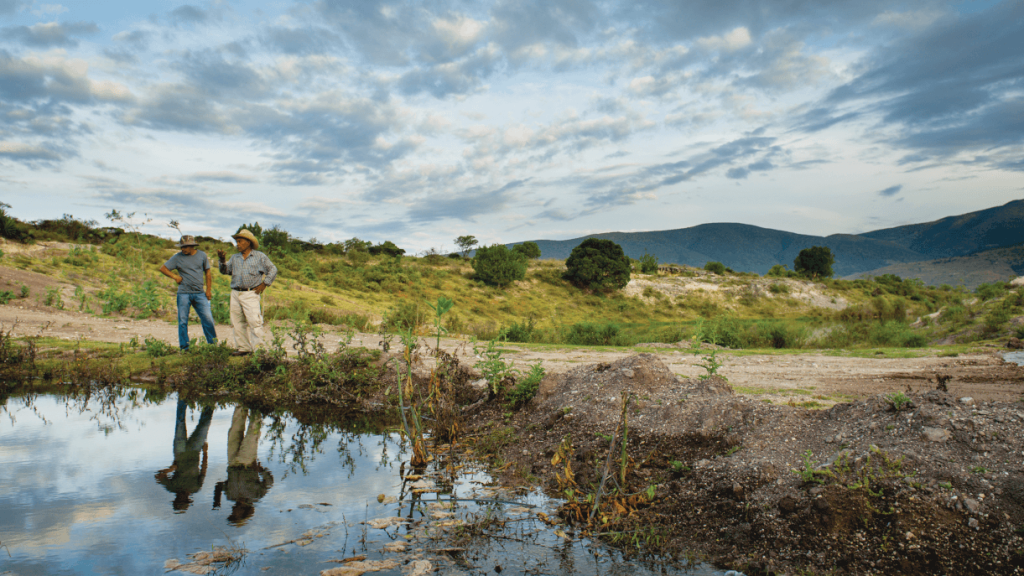
Four years ago, as a student at Western Kentucky University, Nick Wagner began studying how Obamacare was affecting migrant workers in Kentucky’s tobacco fields. His work evolved into a documentary series focusing on Rosalino Santiago Garcia, an H-2A migrant who leaves his home in the Mexican state of Oaxaca for nine months every year to work near the town of Fountain Run. Wagner’s ongoing project, called A Migrant’s Mission, has taken him to Mexico, where he has photographed Rosalino (shown at left, below, with his father).
—Noelani Kirschner
Rosalino is from a very poor, rural part of the country and comes from a small town of about 3,000 people. When I visited Mexico in November of 2014, his family told me that 80 percent of the local economy comes from the United States, from the money that everyone sends back. If nobody went up to the States and worked for nine months, they wouldn’t be doing as well as they are. Rosalino has been trying for the past several years to look for jobs in Mexico. Even if he found something, he would only make 100 pesos a day, which is about $5. He wouldn’t be able to put the bare necessities on the table. He wants to stop going back to Kentucky to work in the tobacco fields, but he can’t afford to. Not only does he take care of his own wife and three kids, but he also supports his mom, dad, and sisters.
Family plays a big part in everyone’s life down there. Rosalino and his wife, Sabina, live a stone’s throw away from his parents’ house. His father is a herder and takes care of animals. He’s been doing that his whole life. He takes care of the property, which is infertile land filled with rocks. When I first met his dad, the first thing he said was, Mi casa es su casa. It seems trivial, but it was true. They treated me like family and said, ‘We don’t have a lot of material things, but we have a lot of the things we can give, like our love.’
In Kentucky, a regular day in the tobacco fields depends on the season. During harvest, it’s grueling work—nonstop sweat. The workers use hatchets to cut the tobacco, and then pick the plants up off the ground before starting to dry them. When they’re hanging the tobacco and it’s drying, they have to strip the tobacco from the stalks and that generates nasty dust. Once, I went in the barn where they do the drying, to take a portrait of Rosalino, and I couldn’t breathe—I was coughing. I asked him, ‘How do you do this?’ because he was fine. The workers wear bandanas over their faces, but I don’t think that does anything. I imagine that Rosalino is going to have health problems. I know he’s had some already, but he doesn’t like to talk about it. I have to step back and remember that the main reason migrant workers come up to the States is that they’re trying to better their own lives.

